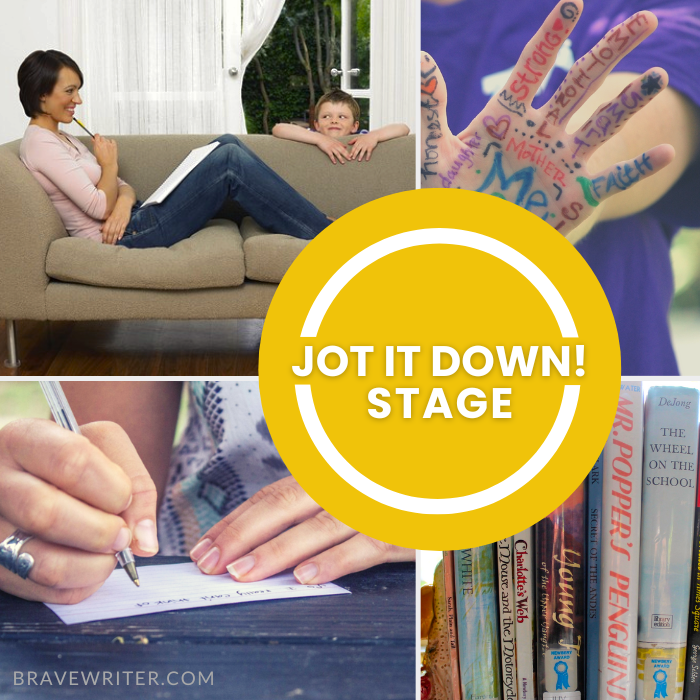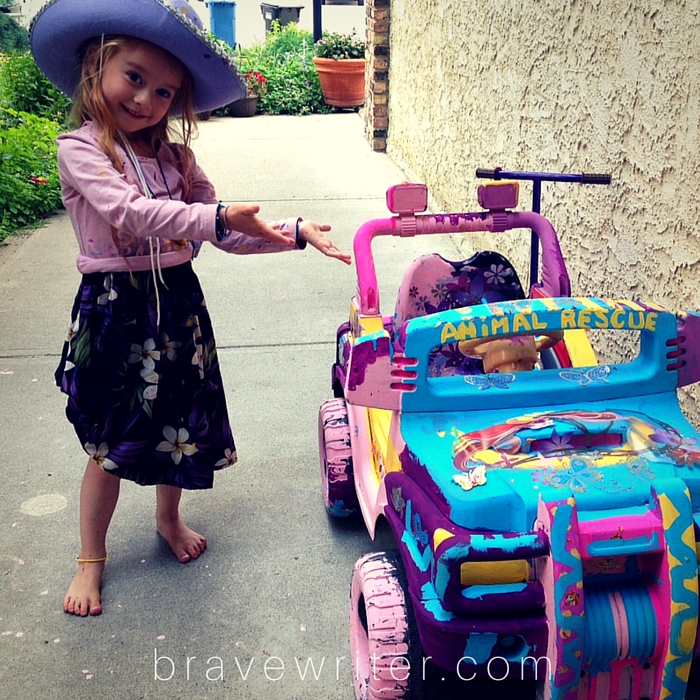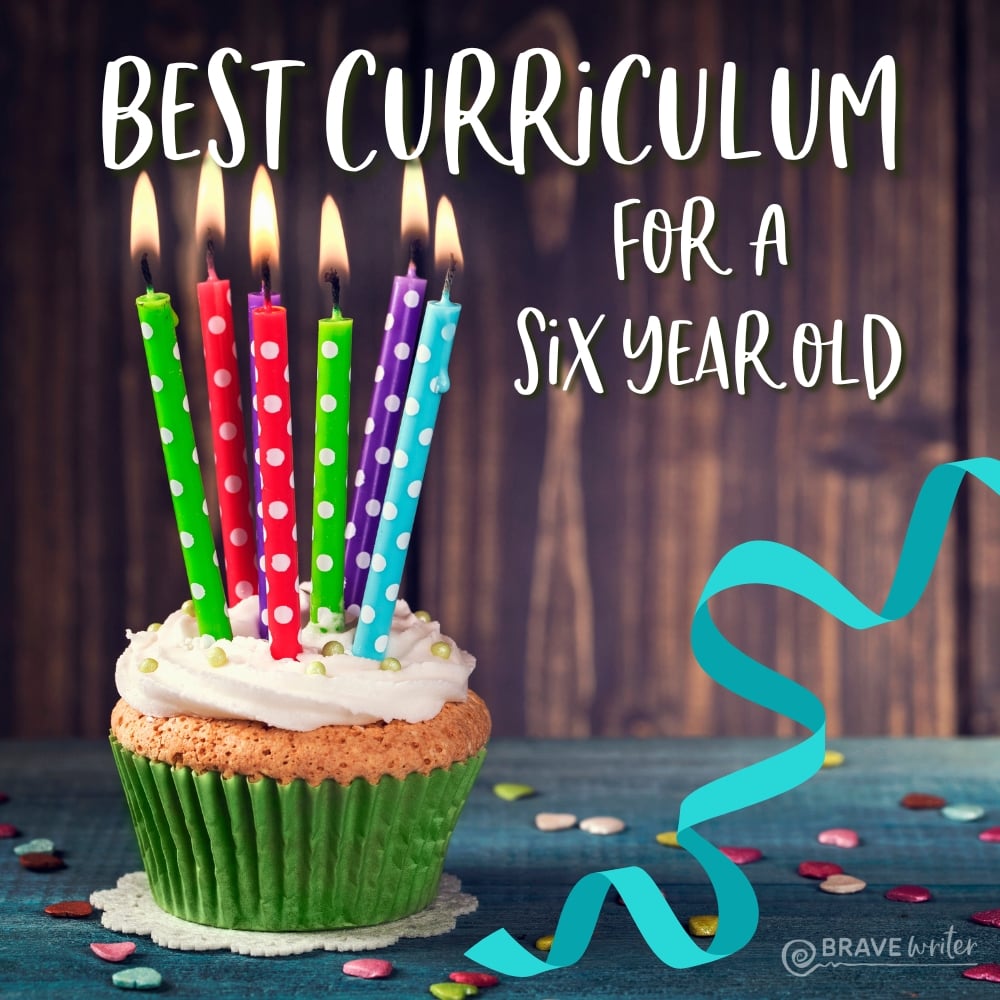
Jotting down what your kids tell you isn’t a short cut to writing. It IS writing.
Does your child:
- excitedly share stories and experiences but is blocked when trying to write them down?
- have a more sophisticated vocabulary than what they write?
- refuse to pen more than a word or two at one time?
- struggle with handwriting or spelling?
If you answered yes to any of these then your child may be in the Jot It Down stage.
Kids in that stage are often between the ages of five and eight, but age doesn’t matter so much. What matters is where they are in the Natural Stages of Growth.

If your child is in the Jot It Down stage:
- Forget all the scopes and sequences.
- Focus on love, joy, and self-expression.
- Read books together.
- Watch movies together.
- Have big, juicy conversations.
- Play with words.
- Catch your child in the act of thinking or storytelling and write down what he says.
- Let her dictate with you acting as secretary.
- With your child’s permission, share some of his thoughts and stories with family and friends.
This is how you slowly help your child see the value of putting thoughts into writing.
So, each time something happy or interesting happens, jot it down. Pay attention to your kids—as in, pay attention to their happiness quota.
- Play games
- Have tea
- Laugh at jokes
- Record the clever things your child says
- Have them write one beautiful word a day instead of a whole passage
- Use gel pens and brightly colored paper sprayed with perfume!
Continue to learn handwriting and spelling but do that through copywork not your child’s original thoughts.

Jot It Down stage in action!
Need more support?
Check out Brave Writer’s Jot It Down! Writing Projects.






















